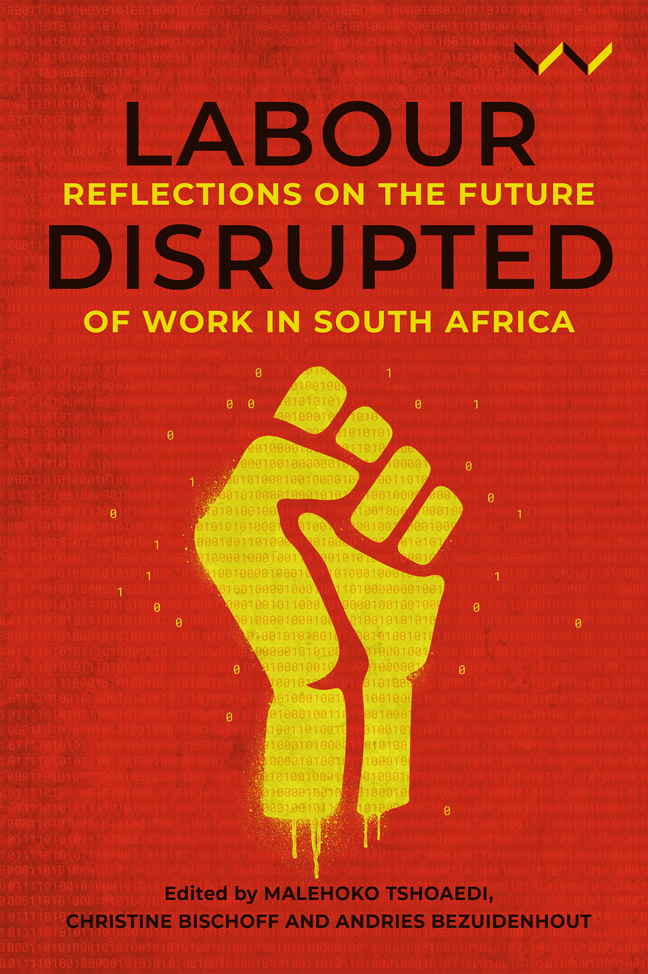Book contents
- Frontmatter
- Contents
- Figures and Tables
- Acknowledgement
- Acronyms
- Introduction: Disruptions and New Directions in South African Labour Studies
- Chapter 1 Fragmented Labour Movement, Fragmented Labour Studies: New Directions for Research and Theory
- PART I Changing Solidarities
- PART II Technology and Work
- PART III New Forms of Organising
- PART IV Labour and Lockdown
- Conclusion: Questions, Answers and New Directions
- Contributors
- Index
Chapter 12 - Competing Interests: Investment Companies and the Future of Labour
Published online by Cambridge University Press: 01 March 2024
- Frontmatter
- Contents
- Figures and Tables
- Acknowledgement
- Acronyms
- Introduction: Disruptions and New Directions in South African Labour Studies
- Chapter 1 Fragmented Labour Movement, Fragmented Labour Studies: New Directions for Research and Theory
- PART I Changing Solidarities
- PART II Technology and Work
- PART III New Forms of Organising
- PART IV Labour and Lockdown
- Conclusion: Questions, Answers and New Directions
- Contributors
- Index
Summary
INTRODUCTION
The Covid-19 lockdown and subsequent economic disruptions caused by rising energy prices following the war between Russia and the Ukraine did not only affect the economy and the workplace, but also trade unions themselves. Trade unions are complex formal organisations that are funded from various sources. At the heart of unions’ finances is the idea that members should pay dues and that the payment of membership fees (or withholding of fees, by resigning from the union) is a form of control that members have over their representative organisations. This principle was so important at the time of the formation of the Congress of South African Trade Unions (Cosatu) in 1985 that the federation made ‘paid-up membership’ one of its core principles. One of the reasons for this is the need for unions to be independent and free from outside interference. The rise of union investment companies in the post-apartheid era was seen as a way for the labour movement to take advantage of Black Economic Empowerment initiatives in the economy; this introduced a new dynamic to this equation. This chapter considers the role that union investment companies play in the internal dynamics of trade unions, with a particular focus on union finances.
Proponents of union investment companies argue that they allow for an opportunity to grow the economy's ‘social sector’, as well as an opportunity to use profits to benefit union members and their dependents (Cosatu 1997, Chapter 2; Golding 1997; Copelyn 1997). The scholarship programmes of both the Southern African Clothing and Textile Workers’ Union and the National Union of Mineworkers (NUM) are often mentioned as successful examples (Copelyn 2016). On the other hand, opponents of union investment companies point to the dilution of unions’ mandate to represent the working class, and raise the potentially corrupting influences of unions getting too close to capital and thereby becoming employers of other workers themselves. This, it is argued, constitutes a fundamental conflict of interest (McKinley 1999; Nattrass and Seekings 2016).
The aim of this chapter is to situate the emergence of union investment companies within a historical focus of shifts in trade union finances more broadly, and to draw on a number of interviews with trade union officials and office-bearers to reflect on how trade unions themselves understand and explain the impact of trade union investment companies on the nature of trade unionism.
- Type
- Chapter
- Information
- Labour DisruptedReflections on the Future of Work in South Africa, pp. 250 - 269Publisher: Wits University PressPrint publication year: 2023

